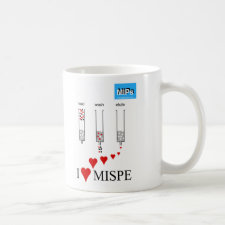
Authors: Guo MJ, Hu X, Fan Z, Liu J, Wang XC, Wang Y, Mi HF
Article Title: Imprinted polymers with cyclodextrin pseudo-polyrotaxanes as pseudo-supports for protein recognition.
Publication date: 2013
Journal: Talanta
Volume: 105
Page numbers: 409-416.
DOI: 10.1016/j.talanta.2012.10.061
Alternative URL: http://www.sciencedirect.com/science/article/pii/S0039914012008922
Abstract: We report a novel approach for preparing protein molecularly imprinted polymers (MIPs) with cyclodextrin pseudo-polyrotaxanes (CD-PPRs) as pseudo-supports, which are formed by self-assembling assistant recognition polymer chains with γ-cyclodextrins. The conformation of the CD-PPRs was characterised by 2D-NOESY, TGA and WAXD. To prepare MIPs, template bovine serum albumin (BSA) was first selectively assembled with modified CD-PPRs to form complexes in the presence of Cu ions. These assemblies were then immobilised by the polymerisation of acrylamide as the monomer and N,N'-methylenebisacrylamide as the cross-linker to prepare protein MIPs. The amount of BSA template adsorbed initially increased with the increase in the amount of CD-PPR and then decreased with the further increase in the CD-PPR content. To obtain the specific adsorption protein, MIPs were washed with KCl solutions of different concentrations. The results of sodium dodecyl sulphateGă˘polyacrylamide gel electrophoresis showed that the specific adsorption proteins could be collected with a 0.500 mol L-1 KCl solution. The recognition specificity to the template relies on the spatial configuration constructed by CD-PPR and metal ions. Finally, this imprinted polymer was used to purify the template from the protein mixtures containing either two (BSA and ovalbumin) or four (BSA, ovalbumin, soybean trypsine inhibitor and lysozyme) different proteins. Both experiments have demonstrated MIPs high selectivity
Template and target information: protein, bovine serum albumin, BSA
Author keywords: assistant recognition polymer chains, Cyclodextrins pseudo-polyrotaxane, molecularly imprinted polymer, poly (vinyl alcohol), protein adsorption



Join the Society for Molecular Imprinting

New items RSS feed
Sign-up for e-mail updates:
Choose between receiving an occasional newsletter or more frequent e-mail alerts.
Click here to go to the sign-up page.
Is your name elemental or peptidic? Enter your name and find out by clicking either of the buttons below!
Other products you may like:
 MIPdatabase
MIPdatabase









